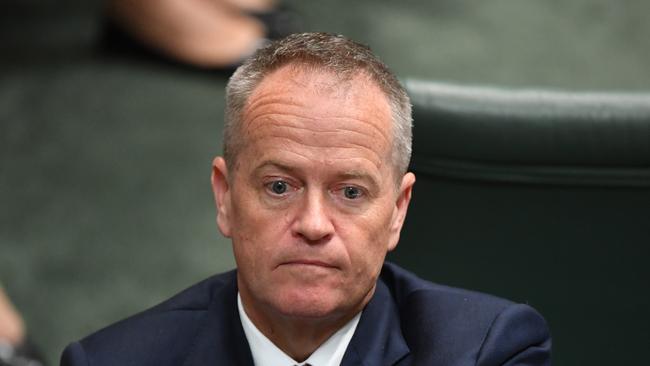Bill Shorten allows encryption laws to pass
Labor last night backed down on altering the government’s new anti-terror encryption laws and allowed them to pass.

Bill Shorten last night backed down on Labor’s insistence on altering the government’s new anti-terror encryption laws and allowed them to pass, after a fight between the major parties over national security.
Mr Shorten said the backdown would avoid sacrificing the safety of Australians over the holiday period when security agencies warn the terror threat increases.
Labor had earlier failed in its attempt to force the government into an embarrassing loss over a lower house vote.
“I will not sacrifice the safety of Australians because Mr Morrison doesn’t have the courage to deal with issues in the house of representatives,” Mr Shorten said.
“We are not going to go home and leave the Australian people on their own over Christmas with inferior laws of national safety.”
Australian Security Intelligence Organisation head Duncan Lewis last week said the agency would use the new powers immediately, with elements of the bill requiring a 28-day notification period before coming into effect.
The laws — which passed the Senate last night 44 votes to 12 — give national security agencies better access to encrypted messages and devices to avoid terrorist attacks, and to target paedophiles and organised crime gangs.
Technology companies and industry experts had expressed major concerns about the laws, claiming they would undermine encryption used to secure data.
As Victorian senator Jacinta Collins last night confirmed Labor would withdraw its amendments in the Senate, Mr Shorten said the opposition would seek a deal with the government to get them to help pass its proposed changes next year.
Senate government leader Mathias Cormann said the government supported only those amendments it considered to be in the spirit of those recommended by a bipartisan report released this week.
“I also confirm that the government has agreed to facilitate consideration of these amendments in the new year in government business time,” Senator Cormann told the Senate.
“And I finally, also, confirm that the government supports in principle all amendments that are consistent with the recommendations of the parliamentary joint committee on intelligence and security recommendations in relation to this bill.”
Mr Shorten was unable to say that he had any agreement in writing guaranteeing the government’s support to pass Labor’s changes in full.
The laws, which Mr Shorten claimed were “unsatisfactory”, were passed after a day of parliamentary tactics on both sides.
The opposition attempted to use its amendments to force the government to extend the sitting of the lower house to facilitate a separate vote which the Coalition was likely to lose.
At the same time it appeared the government was prepared to allow the laws not to pass before Christmas — despite insisting they were essential to avoid terror attacks — to avoid a damaging vote on proposed refugee laws.
Attorney-General Christian Porter said Labor’s manoeuvring broke with assurances he had received from Labor over how it would deal with the laws.
“Labor chose politics over giving our police and security agencies the tools they need,” he said.


